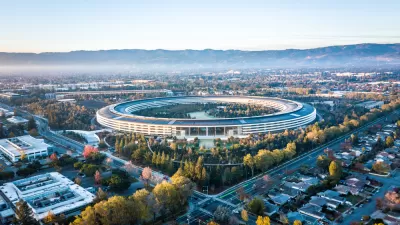The controversy over the recent ballot initiative known as Measure S has Los Angeles thinking: How can the city accommodate new housing supply without disenfranchising communities?

At a recent USC Price School panel, planners, developers, and advocates discussed how Los Angeles could plan for both more housing supply and improved neighborhood equity in the aftermath of the failed Neighborhood Integrity Initiative, which helped to ignite a citywide conversation about planning and growth.
Although the city recently committed to updating community plans on a six-year cycle, former Director of City Planning Gail Goldberg maintained that the community planning effort would be hindered by the lack of a cohesive, inspiring general plan—resulting in every community coming up with its own vision, and more opposition to new development.
"I would propose that if communities have no idea where things are going, or what the ultimate result is supposed to be, it's not an illogical response to oppose new projects," she argued. Moreover, a lack of transparency and accountability leaves them apparently without recourse: "If they worked and adopted a plan that they loved, would the council honor it?"
South L.A. community organizer Damien Goodmon added that the regional and local housing crises can be situated in the context of a global interest in speculative real estate that especially impacts underserved communities. "We're not building housing for people to live in; we're building housing for investment," he said.
Before we discuss whether we need more housing and where to put it, let’s talk about protecting our existing communities. Ultimately, that forces us to talk about the challenge of gentrification—the spatial expression of economic inequality.
Goldberg, too, stressed the need for a holistic approach to planning in her call for "a new way of doing community plans."
Community plans have to be about more than just growth. They are not only about where development goes and where it doesn’t go. Community plans have to talk about the quality of life in that community, and how we make sure that along with housing come all of the other things that we all need—the jobs, the infrastructure, and the amenities that make neighborhoods great.
FULL STORY: Stewarding a Post-'Measure S' LA: Will City Leaders Truly Engage?

Maui's Vacation Rental Debate Turns Ugly
Verbal attacks, misinformation campaigns and fistfights plague a high-stakes debate to convert thousands of vacation rentals into long-term housing.

Planetizen Federal Action Tracker
A weekly monitor of how Trump’s orders and actions are impacting planners and planning in America.

In Urban Planning, AI Prompting Could be the New Design Thinking
Creativity has long been key to great urban design. What if we see AI as our new creative partner?

Portland Raises Parking Fees to Pay for Street Maintenance
The city is struggling to bridge a massive budget gap at the Bureau of Transportation, which largely depleted its reserves during the Civd-19 pandemic.

Spokane Mayor Introduces Housing Reforms Package
Mayor Lisa Brown’s proposals include deferring or waiving some development fees to encourage more affordable housing development.

Houston Mayor Kills Another Bike Lane
The mayor rejected a proposed bike lane in the Montrose district in keeping with his pledge to maintain car lanes.
Urban Design for Planners 1: Software Tools
This six-course series explores essential urban design concepts using open source software and equips planners with the tools they need to participate fully in the urban design process.
Planning for Universal Design
Learn the tools for implementing Universal Design in planning regulations.
Gallatin County Department of Planning & Community Development
Heyer Gruel & Associates PA
JM Goldson LLC
City of Camden Redevelopment Agency
City of Astoria
Transportation Research & Education Center (TREC) at Portland State University
Jefferson Parish Government
Camden Redevelopment Agency
City of Claremont





























